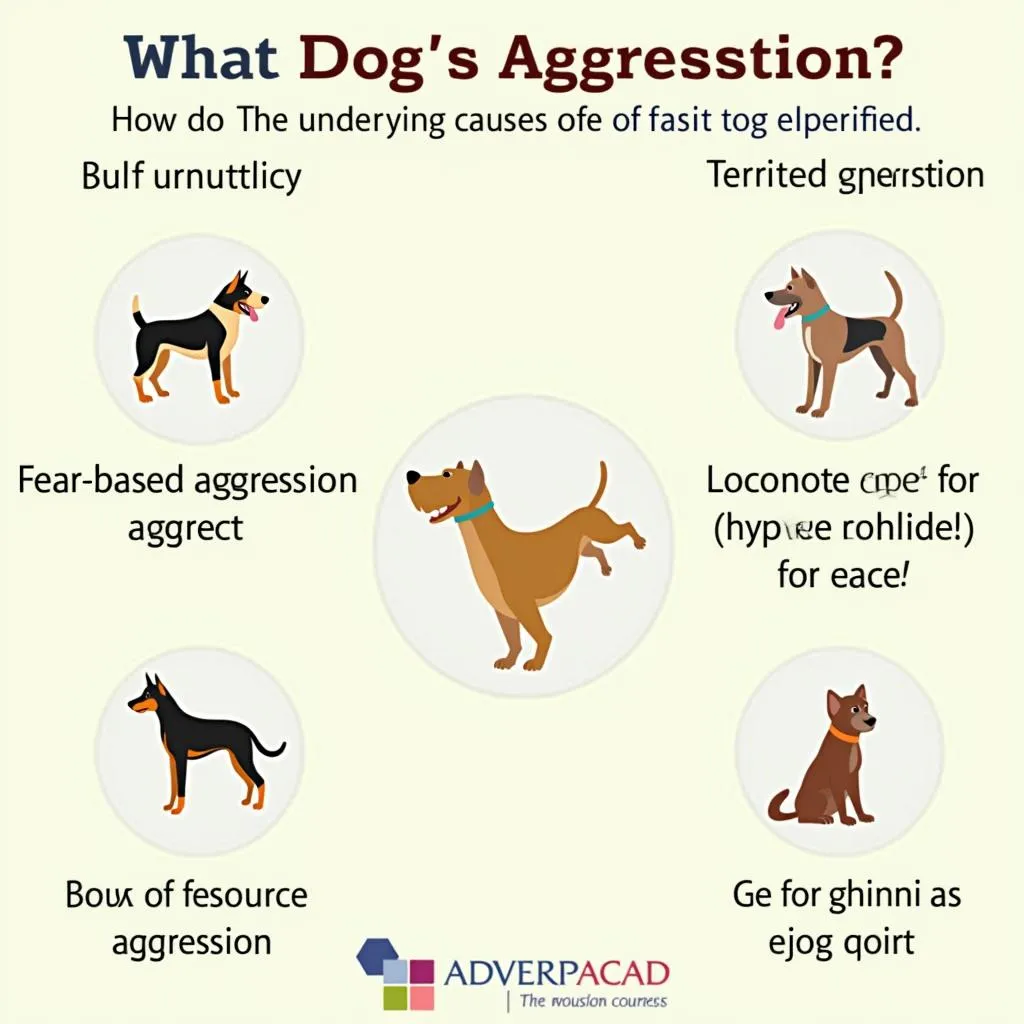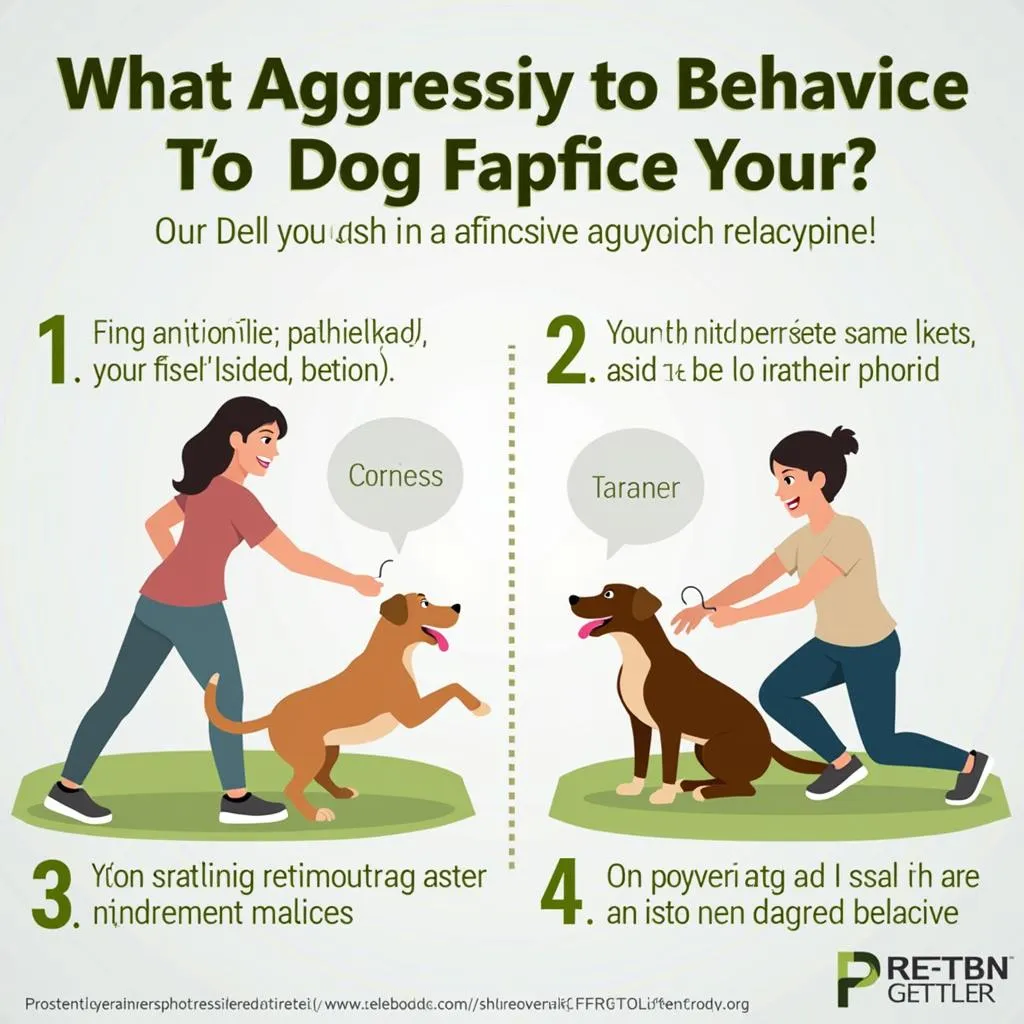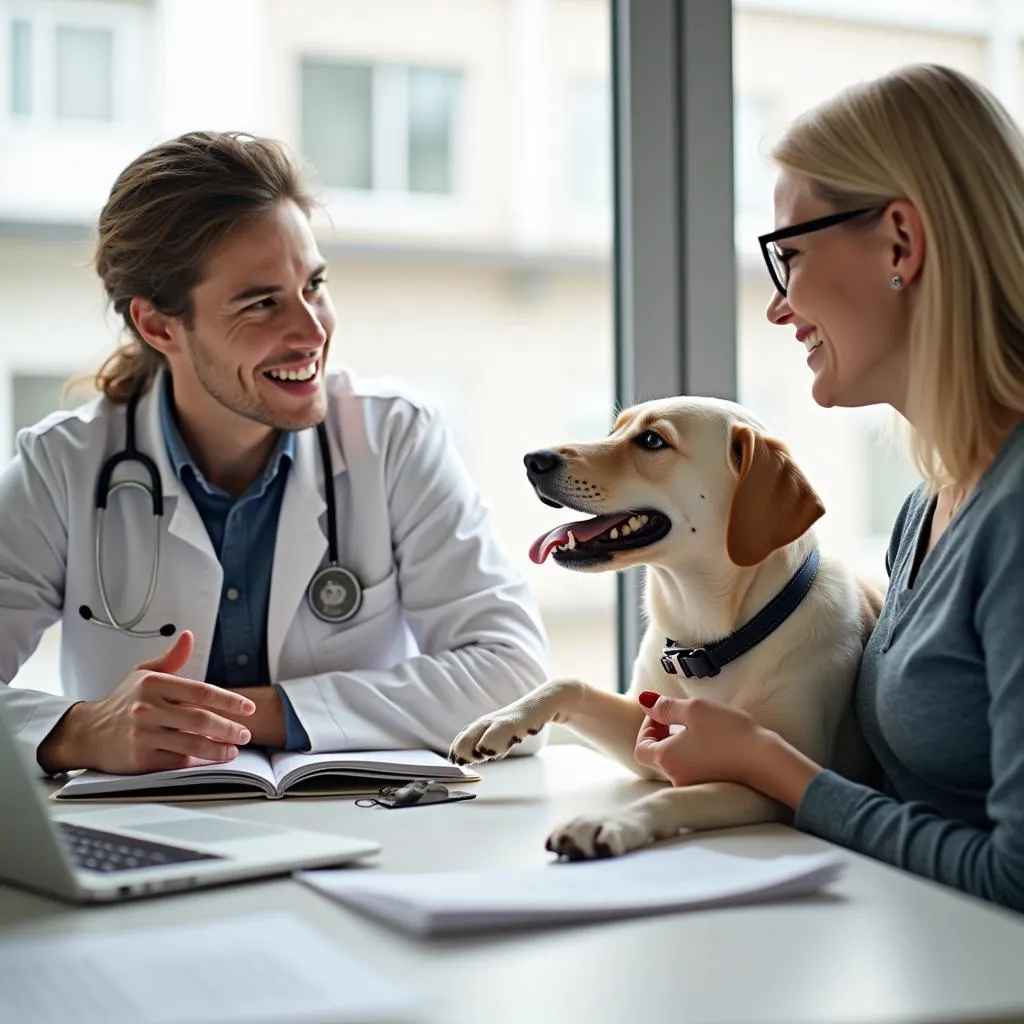“A dog is a man’s best friend,” the saying goes, but sometimes those furry companions can exhibit behaviors that leave us scratching our heads. One of the most concerning behaviors is aggression, and it can be a real challenge to manage. If you’re wondering, “Is my dog aggressive?” you’re not alone. Many pet parents grapple with this question, and it’s essential to approach it with understanding and a focus on solutions.
What Does Dog Aggression Mean?
Dog aggression, in simple terms, is when a dog displays threatening behavior towards another dog, humans, or even inanimate objects. It can manifest in various ways, including growling, snapping, barking, lunging, biting, and even showing their teeth. But it’s crucial to remember that not all aggressive behaviors are created equal. There are different types of dog aggression, and understanding the underlying causes can help us address them effectively.
Why Does My Dog Act Aggressive?
“Why is my dog so aggressive?” you might ask. Let’s face it, dogs are complex creatures, and their behavior is influenced by a multitude of factors. Here are some common causes of dog aggression:
1. Fear and Anxiety:
Dogs can exhibit aggressive behaviors when they feel scared or threatened. Think of it like a “fight or flight” response, but in their case, it often manifests as aggression. It’s like that saying, “Scaredy-cat!” but in a canine context.
2. Territoriality:
Dogs are natural protectors of their territory, which can include their home, their owner, or even their food bowl. If they perceive a threat, they may become aggressive to defend their “property.” This is especially true for certain breeds known for guarding instincts, like German Shepherds or Rottweilers.
3. Resource Guarding:
Dogs may become aggressive when they feel possessive of their resources, including food, toys, beds, or even attention. This is often a learned behavior, where they associate certain objects or people with pleasure, and they want to keep them all to themselves.
4. Pain and Illness:
Dogs can act aggressively when they are in pain or feeling unwell. If they are hurt or experiencing discomfort, they might lash out as a defense mechanism. Remember, if your dog suddenly starts acting aggressively, it’s always wise to consult a veterinarian to rule out any underlying health issues.
5. Past Trauma:
Just like humans, dogs can experience trauma, whether it’s from abuse, neglect, or a frightening experience. These past experiences can leave lasting emotional scars, making them more prone to anxiety and aggression.
How Do I Know If My Dog Is Aggressive?
Let’s be honest: We don’t want to label our furry friends as “aggressive” without a good reason. It’s essential to differentiate between a playful nip or a bark of warning and true aggressive behavior.
A good way to tell is to observe your dog’s body language:
- Raised hackles: The fur on their back stands up.
- Stiff body: Their body is rigid and tense.
- Lip lifting: They lift their upper lip, revealing their teeth.
- Growling: They make a low, guttural sound.
- Snapping: They quickly close their jaws, often with a bark or growl.
- Lunging: They move forward quickly, often with a growl or bark.
- Biting: They use their teeth to cause pain or injury.
If you see any of these signs, it’s crucial to take note and address them.
Is My Dog Aggressive Quiz: A Self-Assessment
Ready to assess your dog’s behavior? Here are some questions to ask yourself:
- Does your dog growl or snap at other dogs?
- Does your dog growl or snap at you or other family members?
- Does your dog become possessive of their food, toys, or other belongings?
- Does your dog seem overly anxious or fearful in certain situations?
- Has your dog ever bitten anyone?
If you answered “yes” to any of these questions, it’s a good idea to consult with a professional dog trainer or behaviorist. They can help you identify the underlying causes of your dog’s behavior and create a plan to address it effectively.
What Can I Do If My Dog Is Aggressive?
“I’m worried about my dog’s aggression; what should I do?” Don’t despair! There are ways to help your dog overcome aggression and create a harmonious relationship.
1. Seek Professional Help:
Consulting with a certified dog trainer or behaviorist is the first step. They can provide expert guidance and create a personalized training plan tailored to your dog’s specific needs.
2. Positive Reinforcement Training:
Training is essential for managing aggression. Focus on positive reinforcement techniques, such as rewarding your dog for calm and appropriate behavior.
3. Manage the Environment:
Preventing triggers is crucial. If you know your dog gets anxious around other dogs, avoid dog parks or crowded areas. Create a safe and comfortable environment at home.
4. Proper Socialization:
Early socialization is crucial. Introducing your dog to other dogs and people in a controlled and positive manner can help them build confidence and reduce fear.
5. Understanding Canine Body Language:
Learning to read your dog’s body language is essential for preventing aggression. Recognize the subtle signs of anxiety or discomfort and take steps to address them.
The Importance of Patience:
Remember, changing a dog’s behavior takes time and patience. Just like people, dogs learn at different paces. Don’t give up, and stay consistent with your training efforts.
A Story of Hope:
There once was a dog named “Lucky” who was considered aggressive by his previous owner. He had been abandoned and suffered a traumatic experience, making him fearful and reactive. But Lucky found a new home with a loving family who understood his past. They sought professional help, implemented positive reinforcement training, and provided a safe and comfortable environment. With time and patience, Lucky transformed from a fearful and aggressive dog into a loving and well-adjusted family member.
The Spiritual Perspective:
In Vietnamese culture, there’s a belief that dogs are loyal and protective companions, often considered guardians of the home. If you’re struggling with a dog’s aggression, consider seeking the guidance of a spiritual advisor or practicing some mindfulness techniques to create a peaceful environment for both you and your furry friend.
Seeking Professional Help:
For assistance with dog behavior challenges, contact “I Love My Pet.” Our team of experts is here to help you find the right solutions for your furry friend. Don’t hesitate to reach out!
 Dog Aggression Quiz Results
Dog Aggression Quiz Results
 Dog Aggression Training Methods
Dog Aggression Training Methods
 Dog Behavior Consultation
Dog Behavior Consultation
If you’re experiencing challenges with your dog’s aggression, remember, you’re not alone. With the right guidance and support, you can create a happy and harmonious relationship with your canine companion. Don’t hesitate to seek professional help and use this information as a starting point for understanding your dog’s behavior and finding the right solutions.
Do you have any questions about dog aggression or other canine behavior? Share them in the comments below!
Leave a Reply
You must be logged in to post a comment.